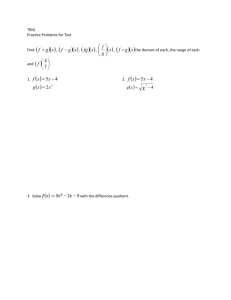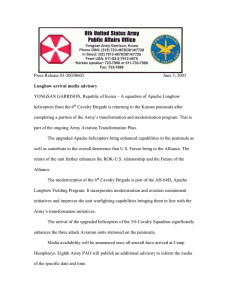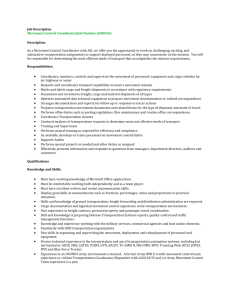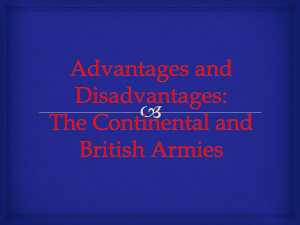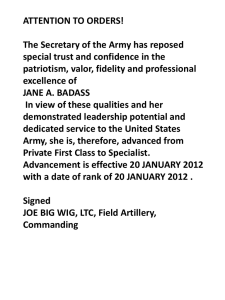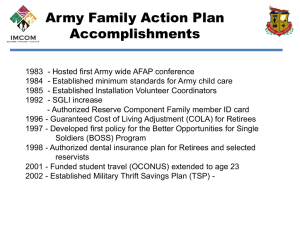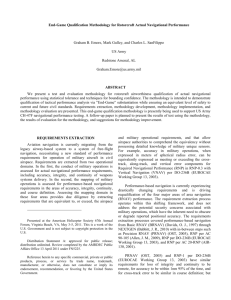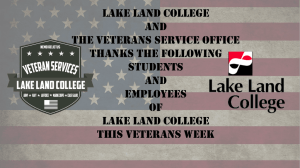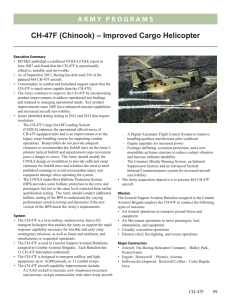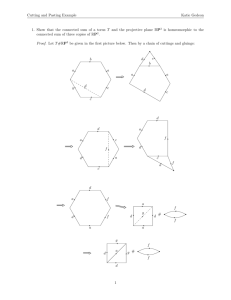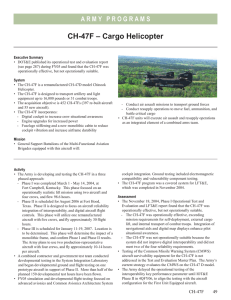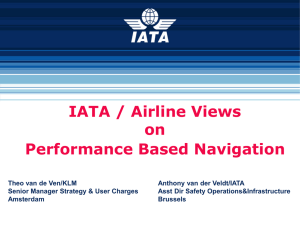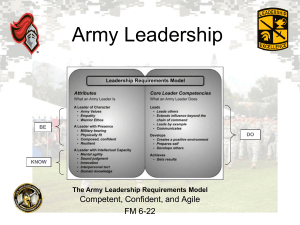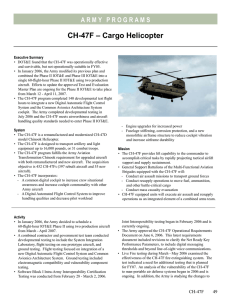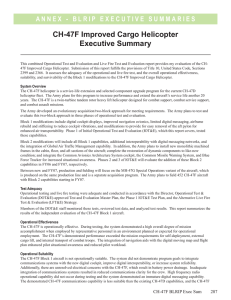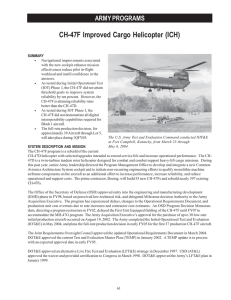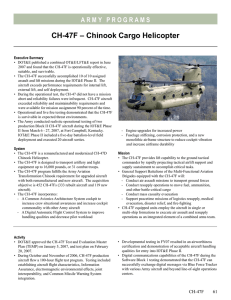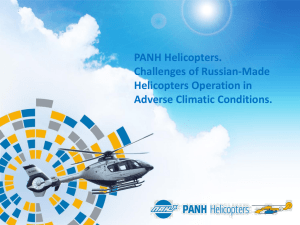End Game Qualification Methodology for Rotorcraft Actual
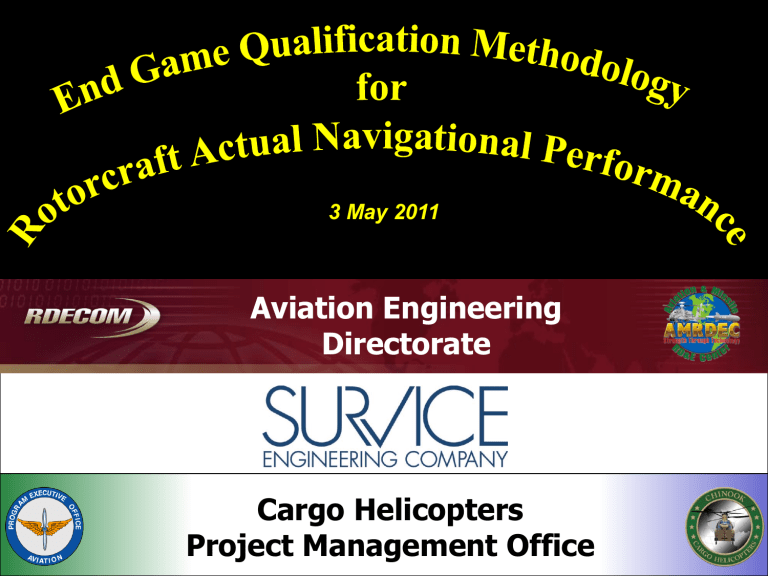
3 May 2011
Aviation Engineering
Directorate
Cargo Helicopters
Project Management Office
3 May 2011
Agenda
• Purpose/Intent
• Requirement Extraction
• Methodology Development
• Methodology Implementation
• Methodology Evaluation
• Conclusions/Summary
• Contact Info
Purpose/Intent
Share with the community a methodology suitable for use with a continuously maturing system in a high cost environment, which requires high fidelity analysis from the relatively small sample sizes available for certification.
Requirements Extraction
• Army Requirements
– Operation in civil airspace during peacetime
• Clearance/conformance/safety
– Operation in DVE (“Brown-out”)
• Precision movements (sling load ops)
• Operations w/o controller support
1 of 2
Requirements Extraction
2 of 2
• Civil Airspace Requirements
– Future - Performance Based Nav (“Free-Flight”)
– Current – RCTA D.O. 236 Minimum Requirements for Operation in RNP RNAV Airspace
• Rockwell Collins CH-47F Preliminary Analysis
– Components of Total System Error
– Analysis of Individual Error Components
Methodology Development
1 of 2
• Legacy
– WBS, decompose and build test data package
– Level of Performance, sample testing and statistical confidence as data set (RNP-10)
Methodology Development
2 of 2
• “End Game”
– Hypothesis: Performance Failure
• Variability unrestrained
• Distribution unknown
– Focus on Risk Reduction for cost and schedule
• Data collection required exceeds for this analysis
• Sample Size where
Methodology Implementation
1 of 2
• Preliminary RNP Analysis
– Total System Error
– Sample Size Assessment
• End Game Accuracy Data Collection
– Flight Operations
– Instrumentation (Independent Sensor & Data
Recording)
Methodology Implementation
2 of 2
• Modified Legacy Testing
– Box to Subsystem to System
– Cost v. Data Collection v. Analysis
• Final analysis
– Putting It All Together
Methodology Evaluation
• “End Game”
– Verification of sample size
• Population test
1 of 2
– Optimize the data (minimal unrecoverable resouce usage)
• Multi use / Reuse (for Requirement Assessment)
• Aggregation of analytical components
• Consolidated Planning (HW, SW, Labs, and Data Analysis)
• Risk Reduction (number of requirements met, sensor, fms,
• Cost reduction/avoidance (See all above)
Methodology Evaluation
• Final analysis
– Population test
• Expandable data set for additional applicability
– Qualification Statement
• Confidence in Results
2 of 2
Conclusions/Summary
• “End Game” Methodology has applicability beyond current use on CH-47F Helicopter
– CH-47F is only first of several U.S Army Helicopters to seek
RNP RNAV Certification
• Provides a more understandable and programmatically palatable method through which to obtain management support for statistical analysis efforts
• Methodology is under test by PM Cargo Helicopters
– Results to be published
Contact Info
• Graham Emore
US Army, AMRDEC, Aviation Engineering Directorate graham.emore@us.army.mil
• Mark Gulley
SURVICE Engineering Company mark.gulley@survice.com
• Charles SanFilippo
US Army, PEO Avn, PM Cargo Helicopters charles-sanfilippo@us.army.mil
